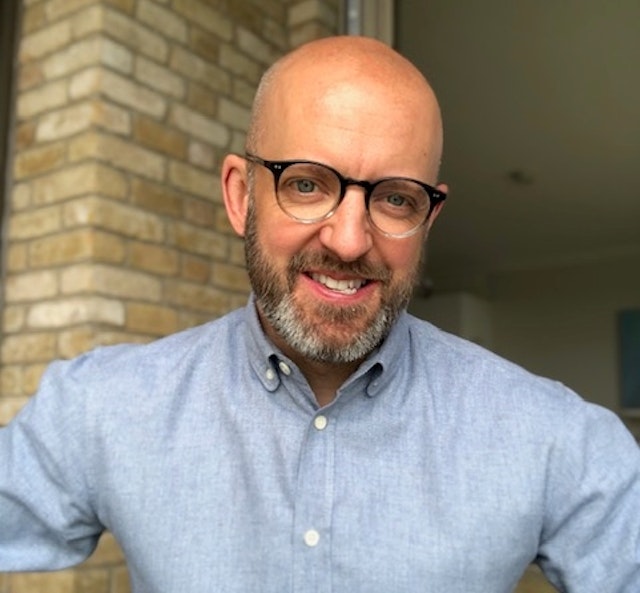Digital disruptors meet heritage heroes – a new approach to marketing growth
Direct-to-consumer (DTC) ‘new economy’ players and household ‘power brand’ names are converging on the same territory – but coming from very different starting points. They know that what got them to where they are won’t get them to where they need to go. Both must utilize each other’s strengths to unlock their full potential.

New economy meets power brands
While the DTC revolution has spawned countless success stories of rocketing growth, many new economy brands are struggling to get past a growth plateau despite initial impressive customer acquisition. Conversely, power brands excel at building brand equity, but are attempting to reach new client bases without the data precision smarts inherent to DTC players. So what’s the sweet spot for both to meet in the middle?
Wavemaker’s client base is drawn from both camps, from new economy stars like Coinbase, Doordash, Square and Zwift, all the way to power brands like Colgate, Danone, L’Oréal and Mondelēz. The Drum caught up with Wavemaker’s global client president Alastair Bannerman to discuss the thinking behind this ‘new economy meets power brands’ theory, and how the agency is cross-pollinating the two worlds, allowing each to harness the learnings of the other and acting as a bridge – making way for new consumer experiences to be forged.
Where do the new economy clients excel and what are their biggest challenges?
New economy brands are masters at the bottom end of the funnel but they are less well-versed in how to build brands longer term. In many cases, their aim is to disrupt power brands.
When they talk to an agency, they’re still relatively new, in their second or third round of funding. And to get that funding and prove their value, they’ve had to show they can acquire customers very quickly. But they get to a point where growth starts to plateau, so they need a longer-term plan for growth and approach to measuring it.
We build models to show that brand advertising can make performance activity work harder. Many times, new economy brands think it’s an either/or – if we do brand advertising, we won't be driving sales. And if we drive sales, we won’t be building brand equity. But one supports the other.
And how about the power brands; how are they navigating the advertising landscape at the moment?
They’ve all spent years trying to reach as many people as possible through differentiation and brand equity, but they haven’t really ever been able to understand anything about the people that buy their products. They’ve always done traditional research but they typically don't have the richness of first-party data that new economy brands enjoy.
We recently won Danone’s global consolidation review and the pitch was very focused on data. Danone is the world's biggest dairy company but the category is changing from traditional dairy to plant-based alternatives. They want to find the next slice of population that are about to pivot into plant-based dairy.
That’s difficult to answer with traditional research. You can’t isolate those people via media, you need to use data to identify them. So, we filtered out the useless information, looked at searches of plant based diets by geography and mapped it against sales of Danone products. We can then see cities where people interested in plant-based products are not already buying these products. Then we can start to provide a different kind of map of markets like the US to know where to target our media.
What do you think each camp can learn from one another?
Power brands can learn from new economy brands about being more agile, about trying something and, if it doesn’t work, killing it. If it does work, scaling it, constantly refining it. On the flip side, new economy brands can learn from power brands about the traditional or old-fashioned rules they sought to disrupt, like building brand equity or taking a longer term view to measurement. Each one wants what the other’s got. And we’re helping to bridge that gap.
Does it require a different culture from agencies, then, when working with these new economy clients?
That culture of agility, testing and refining means that they expect the same level of flexibility and agility from agencies – and from the media ecosystem. The days of committing budgets for the year upfront feels very old fashioned to a new economy brand. The commercial models they have are very different to what traditional power brands would have wanted; they want a much more performance-based relationship and expect their partners to have skin in the game as well.
Shorter pitch processes and dealing with the decision makers mean there’s less politics and bureaucracy, too. By the nature of their own corporate culture, they make decisions quickly that rely on chemistry and trust with partners.
So how is Wavemaker helping to meet these needs?
With new economy brands, I think the temptation has been for the industry to try and beat them at their own game. When they have a pitch, agencies tell them how to make their search 5% more effective or their programmatic advertising 10% more efficient. But they have in-house specialists for that.
We’re not going to try and optimize the thing you’re already good at, we’re going to tell you how to do things you don’t know how to do. We’ve deliberately sought to move the conversation and I think that’s why we’ve been different and attractive to them.
These two types of clients operate in separate universes and never seem to really cross over – the conventional wisdom is that CPG brands talk to other CPG brands, and new economy brands have their own community; they wouldn't dream of talking to a toothpaste brand or a pet food brand. To be successful in building brands in the new economy we live in, there’s so much they can learn from each other.
And finally, Wavemaker will be running a panel at Cannes to explore this topic in more detail – what can attendees expect to learn in this session and why should they come along?
We’re bringing together both new economy and power brands, Coinbase and Paramount Global, to discuss cultural differences, ways of measuring success, how they work with agencies and what they want from the media ecosystem. It will be a clash of cultures with the respectful understanding that each can learn something from the other.
Wavemaker is inviting readers of The Drum to attend the panel, Brand Slam. New Economy Meets Powerbrands, at The WPP Beach in Cannes on June 23 at 11am CET. For more information and to register interest, click here.

Content created with:

Wavemaker
We believe there always is a better way to grow. We positively provoke growth for our clients by reshaping consumer decision-making and experiences through media,...
Find out more